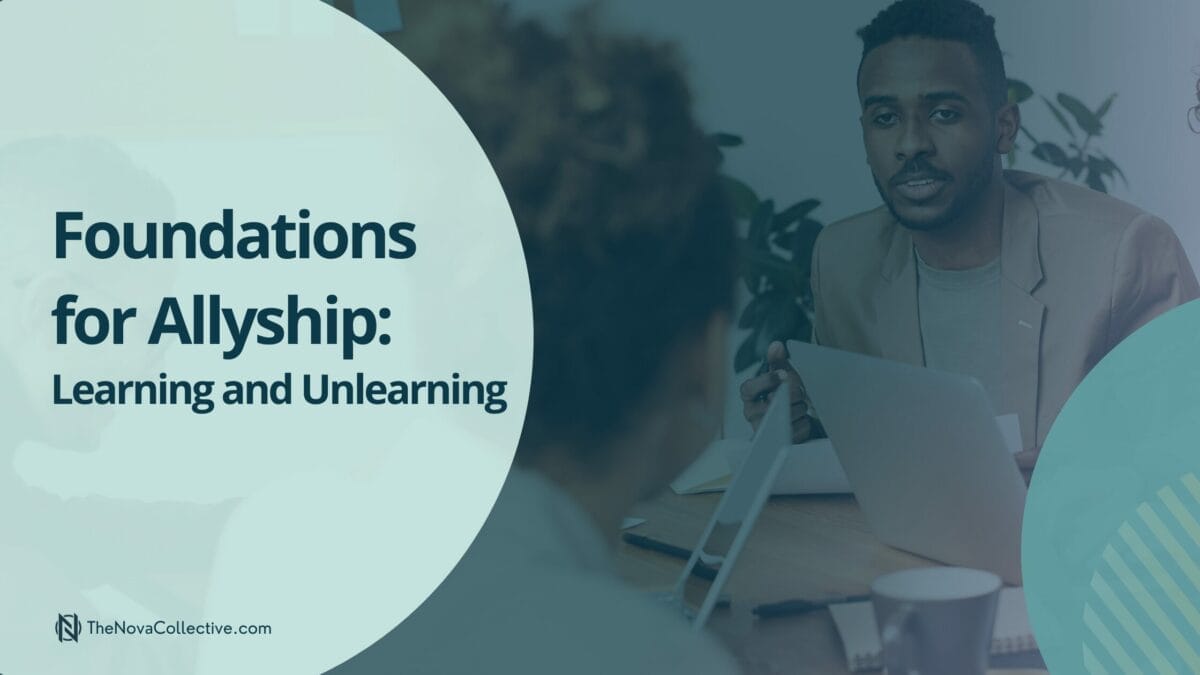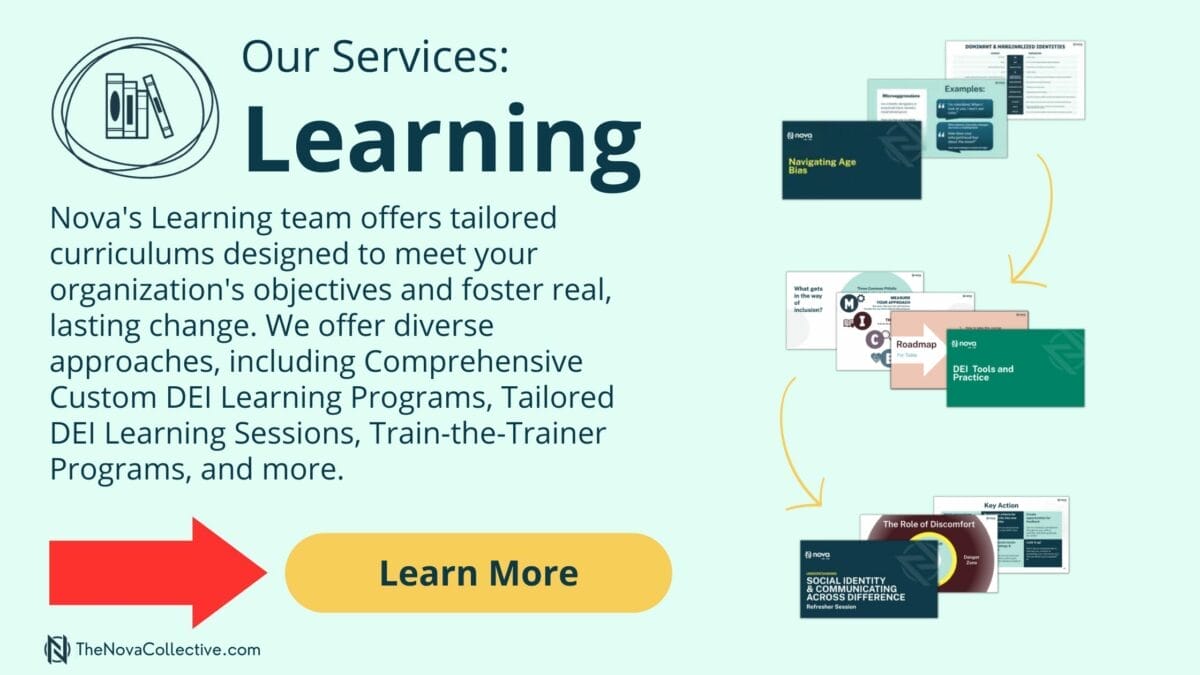To begin to understand the concept of allyship as part of diversity, equity, and inclusion work, we must first unlearn allyship as a noun.
Consider this reframe: Allyship is not a destination or a label we can use to define ourselves. Allyship is a journey, and a process by which we are constantly learning and unlearning.
To work in allyship is to consciously work for social justice for a group without identifying as a member of that group.
Allyship is not a badge we can earn, and it isn’t self defined. Only the groups we seek to ally with are the ones to identify others as such. Think of allyship as a verb – an active practice. The doing.
Allyship and DEI
Allyship can play a major role in affirming DEI at work. Learning and building awareness of how social identities and power dynamics affect our experiences is a catalyst for allyship and taking action.
By practicing allyship, team members can create support structures for healthy workplace communities. Allyship involves not only understanding one’s own privilege, but also actively working to notice and shift the structures that perpetuate the hierarchy and those power dynamics that exist at work and within our society at large.
Here are a few places to start:
- Educate Yourself:The first step to effective allyship is awareness – . educating ourselves about inequity and injustice so we can recognize it. Learn about the experiences, challenges, and perspectives of people who are different from you. This can include reading books, listening to podcasts, attending workshops, and following activists and thought leaders from a wide array of backgrounds.
- Listen to understand: It’s imperative to listen and hold space for experiences of both groups and individuals that are different from your own. Don’t center yourself in the conversation, keep an open mind, and be genuine in your interest to learn. Reflect on this information and think critically about your own experiences and potential biases. Understand that this is an ongoing process and missteps happen.
- Harness your power for change: Examine and challenge your own prejudices and privilege. We can’t be unbiased – it’s a feature of the human brain. But we can learn to recognize bias and privilege in ourselves, and work to address it. Most of us hold both privilege and marginalization. You could have privilege around socioeconomic status or gender, and also be marginalized around your race or ability. Understanding where and how you hold power can help you be an impactful ally. This can be through actions like advocating for inclusive policies. Or, maybe you have the positional power to be able to diffuse tensions in a conversation that might be less available for the people who report to you, who would be more at risk for negative consequences from speaking up. Be aware not to speak-for or speak-over others.
- Support with Actions and Resources: Allyship can also come in the form of practical support—whether that’s donating to organizations that fight for equality or volunteering for causes that promote DEI. Your support can make a significant difference.
- Be Accountable: Hold yourself accountable to your commitments in allyship, and act in collaboration with people from the groups you’re seeking to ally with.Be transparent and candid in your efforts as well as your mistakes. When you make a misstep, acknowledge it, apologize, and move forward with attention to an evolved behavior. Engage with others to discuss challenges and solutions in a way that fosters growth and understanding.
Allyship for DEI means committing to a journey of learning, unlearning, and action. By actively engaging in allyship, we can contribute to building a more equitable society and a more inclusive workplace. We know that no workspace is a ‘utopia”, but we can aim to be an effective and whole community – one that can hold our messy imperfections and strive to build better futures in which we all can thrive.


